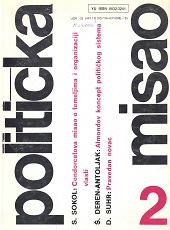Pravedan novac
Fair Money
Author(s): Dieter SuhrSubject(s): Labor relations, Economic policy, Political economy, Economic development
Published by: Fakultet političkih znanosti u Zagrebu
Keywords: Fair Money; Economic Theory;
Summary/Abstract: Unstable money has unjust effects. But stable money is unfair, too. It is more valuable to the wealthy, who dispose of dispensable monetary liquidity, than it is to the poor, who need to spend it for their living — and that because of (and to the amount of) its interest or revenue. Due to this money Interest the monetary system leads to continual self-acting subsidization of the rich by the poorer consumers and producers. Moreover, money is a partial and unfair mediator of exchange. It bestows on its owner a kind of joker privilege: Being a general medium of exchange, it grants on the market to economic agents offering money and in comparison with economic agents only offering goods or labour typical advantages, which correspond to the advantages granted by a joker representing all other cards in a game of cards. The historical trails of this monetary injustice can be traced back to the formation of economic institutions (c. g. of corporations with their prerogatives of decision for capital) as well as in the legal and other efforts to compensate economic disadvantages (e g. of labour). In addition, monetary injustice as described above, can be interpreted economically: Money is, by no means, a neutral medium of exchange. The monetary constitution preconditions structural unemployment, and it pathologically results in compulsory economic growth for the sake of full employment. In contrast to all this, criterions of fair money can be given, which coincide with demands laid down for optimal money in economic and monetary theory. This fair money can be realized, too: One has to compensate for the advantages of monetary liquidity by attaching to money carrying costs (Keynes) for cash-keeping.
Journal: Politička Misao
- Issue Year: XXIII/1986
- Issue No: 02
- Page Range: 126-139
- Page Count: 14
- Language: Croatian

